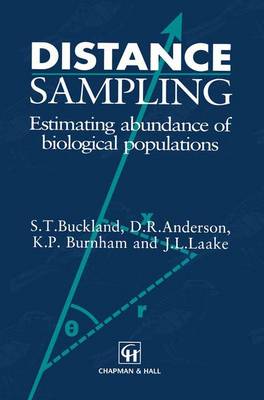British Micropalaeontological Society S.
1 total work
Distance Sampling
by S. T. Buckland, Dr Anderson, K. P. Burnham, and J. L. Laake
Published 27 May 1993
Our environment and natural food resources are continually coming under threat so that the monitoring of population trends is essential today. Whaling is a good example. Here politics and conservation often clash, and over the years more and more restrictions have been applied through the efforts of the International Whaling Commission in an endeavour to save some of our whale species from extinction. Localized fisheries also need to be monitored and quotas set each year. In some countries, sports fishing and hunting are popular so that information is needed about the populations being exploited in order to determine such things as the duration of hunting season and bag limits. Methods of estimating animal abundance have been developing steadily since the 1940s but over the last 20 years activity in this area has intensified and of this growth were two the subject has begun to blossom. At the centre of the authors of this book, David Anderson and Kenneth Burnham, who have widely published in this field. The need for computers in this area was soon recognized and David and Ken were joined by Jeffrey Laake who, with his computing expertise, helped to develop suitable software packages for implementing some of the new techniques. In the 1980s Stephen Buckland entered the arena and began to make his presence felt. Among other contributions, he firmly established the role of Monte Carlo and bootstrapping techniques in population estimation where the unique role of the computer could be fully exploited.
